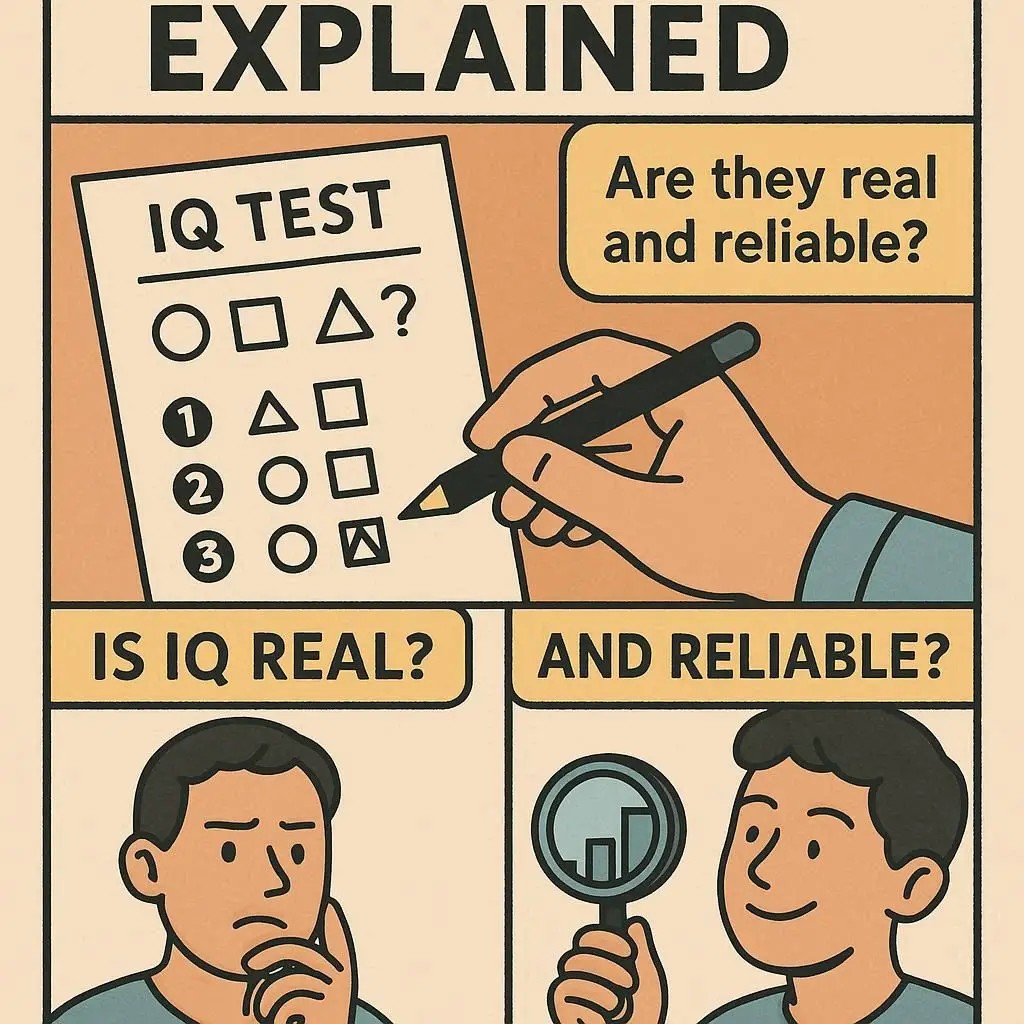Are IQ tests real and reliable?
This is the core question surrounding intelligence testing. The short answer is nuanced: IQ tests are "real" in that they are standardized psychological tools designed to measure specific cognitive abilities. Their "reliability" is high in a clinical sense, meaning they produce consistent results. However, what those results truly mean about a person's overall intelligence and potential is a subject of ongoing debate.

The IQ Bell Curve: Score Distribution
IQ scores are designed to follow a normal distribution, often called a bell curve. The average score is set at 100. Hover over the chart to see how scores are distributed across the population.
What Does an IQ Test Measure?
An IQ test isn't a single test of "smartness." It's a composite of different subtests that assess various cognitive functions. While the exact components can vary, they typically cluster around several core domains of intellectual ability. This section outlines the key areas that most modern IQ tests evaluate.
Verbal Comprehension
The ability to understand, use, and think with spoken language. This includes vocabulary, general knowledge, and understanding social conventions.
Perceptual Reasoning
The ability to think visually and solve problems using non-verbal information. This involves spatial reasoning and identifying patterns.
Working Memory
The ability to hold and manipulate information in your mind for short periods, like doing mental math or remembering a sequence of numbers.
Processing Speed
How quickly and accurately you can scan and process simple information. It measures attention, concentration, and mental quickness.
Fluid Reasoning
The ability to solve novel problems, use logic in new situations, and identify patterns without relying on prior knowledge.
Quantitative Reasoning
The ability to understand numerical concepts and solve mathematical problems. It involves logic and the application of math skills.
Are There Different Types of IQ Tests?
Yes, there are many different IQ tests, each with its own specific structure and focus. Most are administered by trained professionals. Here are some of the most well-known and widely used tests. Click on each tab to learn more about them.
Wechsler Adult Intelligence Scale (WAIS)
The WAIS is one of the most common IQ tests for adults and older adolescents. It's known for providing a Full-Scale IQ score as well as separate scores for the four major components of intelligence: Verbal Comprehension, Perceptual Reasoning, Working Memory, and Processing Speed. It is individually administered by a psychologist.
How Accurate Are IQ Scores?
One of the most debated aspects of IQ is its ability to predict real-world outcomes. Research shows that IQ scores have moderate predictive power in some areas, but they are far from a perfect crystal ball. This chart shows the general strength of correlation between IQ and various life outcomes. A higher bar indicates a stronger relationship, but remember that correlation does not equal causation.
IQ's Correlation with Life Outcomes
Correlation coefficients (r) range from -1 to 1. A value near 0 implies no correlation, while values closer to 1 (or -1) indicate a stronger relationship. Most social science correlations are in the .2 to .5 range.
What Factors Can Affect IQ Test Results?
An IQ score is not a pure measure of innate intelligence fixed from birth. It is a snapshot of cognitive performance at a specific point in time, and can be influenced by a wide array of factors. Click on the cards below to explore some of the key internal and external variables that can impact test results.
Select a factor
Click on one of the factors to the left to read about how it can influence IQ test scores.